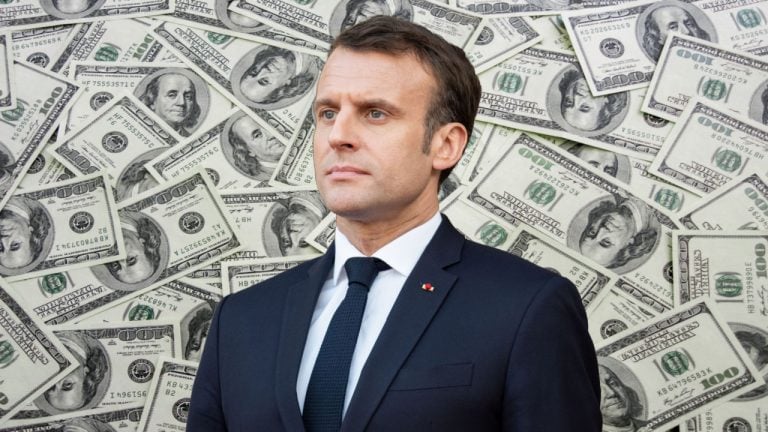
Emmanuel Macron, president of France, clarified his position on the future of Europe and its relations with China and the U.S. in the short term. Returning from his visit to Beijing, Macron believes that Europe should avoid getting caught up in a conflict between the U.S. and China, and reduce its reliance on the U.S. dollar to avoid becoming “vassals,” applying his concept of “strategic autonomy.”
Emmanuel Macron Believes Europe Should Remain Autonomous Regarding U.S. and China
French President Emmanuel Macron recently revealed his stance on the current geopolitical and macroeconomic issues Europe is facing, standing in the middle of the Russia-Ukraine war and a possible Taiwan conflict. At his return from a three-day visit to China, where he met with Chinese President Xi Jinping, Macron stated that Europe commonly gets caught in third-party affairs that affect its possibilities of developing “strategic autonomy.”
Macron also noted that this behavior of the European Union bloc is reducing it to be considered mere backers of the U.S. On this, he told Politico:
The paradox would be that, overcome with panic, we believe we are just America’s followers.
As part of his “strategic autonomy” determination, Macron acknowledged Europe had no possibility of influencing the future of a possible conflict in Taiwan, and that any attempt to do so would only increase the tensions between the parties.
Analysts believe that the doctrine of strategic autonomy has to do more with the U.S. than with countries like China and Russia. About this, Cui Hongjian, director of European studies at the China Institute of International Studies, explained:
It means Europe does not want to be eclipsed in the ‘great power’ rivalry and it needs to have its own say on security, defense and foreign policy issues that have usually been controlled by the U.S.
Avoiding ‘Vassal’ Status by Reducing Dependence on the U.S. Dollar
Macron also stated that Europe had become dependent on the U.S. on the energy and military front, proposing to boost the development of European alternatives. Macron also criticized the dependence that the bloc has on the U.S. dollar, explaining it might hurt them in the future.
On how this dependence might affect Europe, Macron declared:
If the tensions between the two superpowers heat up we won’t have the time nor the resources to finance our strategic autonomy and we will become vassals.
While European countries have not been targeted by U.S. dollar-centric sanctions, European companies often complain that they can’t conduct business with sanctioned countries and entities due to the risk of being targeted by secondary sanctions. China, Russia, and other countries of the BRICS bloc are currently working on developing alternatives to the use of the U.S. dollar for conducting these activities.
President Xi had made calls to the European bloc before, asking it to “stand against hegemonism, unilateralism and attempts to decouple economies or sever supply chains,” in a call against adopting or supporting these sanctions.
What do you think about President Macron’s stance on the dollar dependence of Europe? Tell us in the comments section below.





